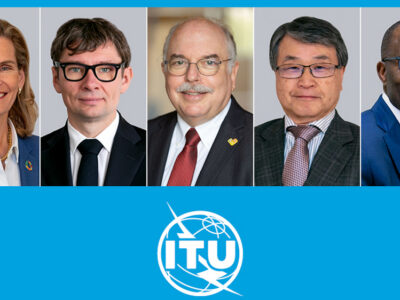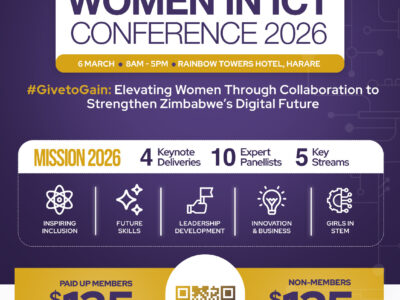By Ross Moyo
Starlink, which jumped to become the second-largest ISP in Nigeria last year, recorded its first loss as its customer base plunged from 65,564 in Q3 2024 to 59,509 in Q1 2025, showing that over 6,000 users had ditched their subscriptions within the period.Starlink, Spectranet, other ISPs lost customers as Nigerians cut internet spending.
Top Internet Service Providers (ISPs) in Nigeria, including Starlink and Spectranet, recorded a significant drop in their customer numbers as Nigerians cut spending on internet services.
According to the latest ISP data released by the Nigerian Communications Commission (NCC), total active customers across 127 ISPs, whose data were made available, dropped to 289,369 as of Q1 2025 from 307,946 recorded in Q3 2024.
NCC approves three-year national roaming deal between MTN Nigeria and 9Mobile.
Telecom operators moots price review, says current rate unsustainable
In the same vein, Spectranet, one of the oldest ISPs in Nigeria and the largest in terms of customer numbers, also recorded a decline in subscribers.
According to the NCC’s data, Spectranet’s active customers declined by 2,189 from 105,441 in Q3 2024 to 103,252 in 2025.
The third-largest ISP by customer number, FibreOne, saw the largest decline in active customers as its database plunged from 33,010 in Q3 2024 to 19,000 in Q1 2025, losing over 14,000 customers.
The reason ISPs’ customers are declining
Industry analysts, who spoke to the media, have attributed the decline in the number of ISP customers to several factors, key among which is cost.
According to an Innovation and Technology policy expert , Jid Awe, the ISPs are also feeling the impacts of the economic realities in Nigeria, which have forced Nigerians to cut costs.
“The rising costs of data, equipment, and power supply mean many families and small businesses have to cut costs and focus strictly on essentials.
“Maintaining subscriptions isn’t as much of a priority for many. Starlink, in particular, is more expensive in terms of device and subscription costs,” he said.
With ISP customers predominantly business, unlike mobile networks that cater mostly to individuals, Awe added that many businesses may also be switching to mobile networks due to their affordability and flexibility compared to fixed ISPs.
Speaking with TechnoMG, the President of the Association of Telecommunications Companies of Nigeria (ATCON), Mr. Tony Emoekpere, said the recent moves by mobile network operators into Fiber to the Home (FTTH) service, the terrain where only core ISPs had been playing, is a factor.
“I don’t think this is fair to the smaller operators (the ISPS),” the ATCON President stated.
Emoekpere added that the decline could also be attributed to the tariff hike implemented in February by all the operators. He, however, noted that there is still a disparity between the prices of MNOs and ISPs.
For small business owners in Lagos, the price increment was the reason they stopped subscribing to his Starlink for two months now.He now subscribes to the broadband service of one of the mobile network operators, which he says is cheaper and delivers the same value he was getting from Starlink.
With the approval of NCC, all telecom operators in Nigeria implemented a 50% increase in voice and data tariffs starting February this year.
Starlink also jerked up its monthly subscription price from N38,000 to N57,000 but started implementation in April.
Between ISPs and MNOs
According to NCC’s database, there are currently a total of 234 companies licensed as ISPs in Nigeria.
However, going by the customer data just released, only 127 of the ISPs had active customers as of Q1 2025.
With a cumulative 289,369 customers, there is a wide gap between the ISPs and the mobile network operators, as the four MNOs remain the dominant players in the internet market.
As of March 2025, MTN, Airtel, Globacom, and 9mobile had 142 million active internet subscriptions.
NCC’s data shows that despite the tariff increment, internet subscriptions on mobile networks have remained steady, declining only marginally by 0.07% to 141.9 million in April.
Sustainable business model suggests a new business model for ISPs in Nigeria to sustain their businesses.
According to him, ISPs need to be more creative and flexible in data plans to address the current lower-income reality.
He said they will also need to go beyond traditional revenue models and mere bandwidth selling and explore ways to add more value through bundled services.
“The ISPs should explore the provision of tailored services for SMEs, real estate, health, and education. With strategic planning, they can further digital transformation within sectors and across industries.
“In this regard, it is advisable to collaborate with agile, tech-savvy SMEs and startups to drive innovation.
“Additionally, improving service quality and customer support will help build trust, while investments in solar and local energy alternatives can enhance service reliability,” he advised.
Nigerian ISPs should also further explore emerging technologies, noting that this could help them improve competitiveness, diversify revenue, and enhance customer retention as the market shrinks














Comments